By Christopher Lancette
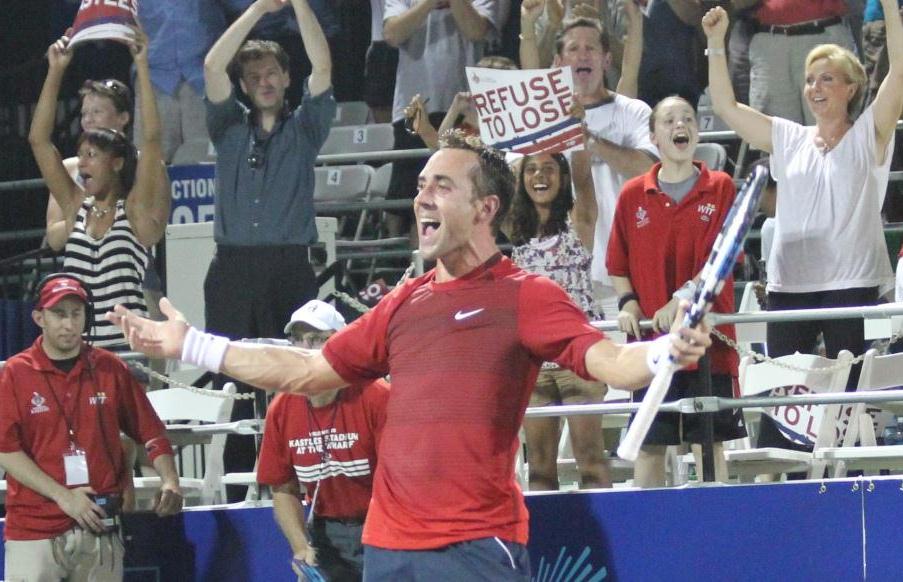 Bobby Reynolds Bobby Reynolds |
It is a scorching hot summer day in College Park, Maryland and Bobby Reynolds has gone from the raucous crowds supporting his Washington Kastles World Team Tennis matches to the obscurity of pumping iron in a stuffy, pint-sized gym at the site of a 2011 U.S. Open qualifying tournament. He doesn’t know it at the moment but the former world No. 63 is a few days away from earning a return to New York – and a few years away claiming a chance to play Novak Djokovic on center court at Wimbledon.
All Reynolds is thinking about is the next match … and the group of kids who seem to cling to him wherever he goes. He doesn’t pull a W.C. Fields even though he’s working out hard at the end of a long day. The six-foot-tall but down-to-earth professional tennis player answers all kinds of questions from aspiring teenage writers and athletes – treating them all as if they were top-notch pros themselves.
“He really took the time to talk to me,” says high school student Ethan Park. “It’s great to meet someone who plays at that level. He’s one of the best 150 players in the world. He has played in Grand Slams. He’s a nice person, really talks to you. It’s humbling to me that he would take that much time for me and an article I’m writing for a school paper. He loves tennis and he’s not in it for the money.”
Park’s analysis couldn’t be more accurate. Big bucks don’t come easily to most players ranked outside the top 50. Reynolds, though, has managed his income wisely and lived a frugal life on the ATP tour.
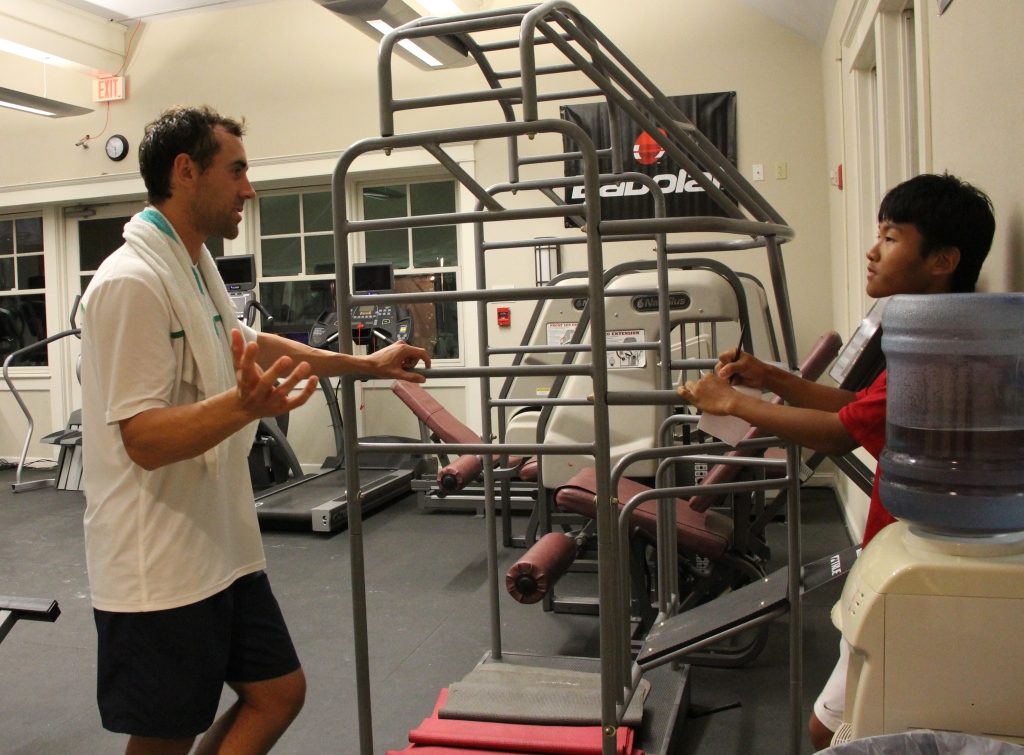 Bobby Reynolds (Left) and Ethan Park Bobby Reynolds (Left) and Ethan Park |
Observing and interviewing Reynolds over the past few years, it’s easy to see all the factors that motivate Reynolds even as he turns 31 this summer but lacks the fame and resume of another man his age who possesses 17 “Grand Slam” titles and enough cash to take care of his family for generations.
Start with his love of the game.
“I love to be out here competing,” Reynolds says. “I love playing tennis for a job. We do get paid but I don’t think the money is what makes us do this work. Ultimately, we play to be in the Grand Slams!”
Reynolds has appeared in the main draw of 17 Grand Slam events but had not won a Major match since 2008. That changed last month when he beat No. 97 Steve Johnson in the first round at Wimbledon – earing the opportunity to play the No. 1-ranked Djokovic. Reynolds fought valiantly but lost in three sets. The win in the previous round, though, continued a 2013 resurgence in which he knocked out five top 100 players in about a three-week span starting in late February.
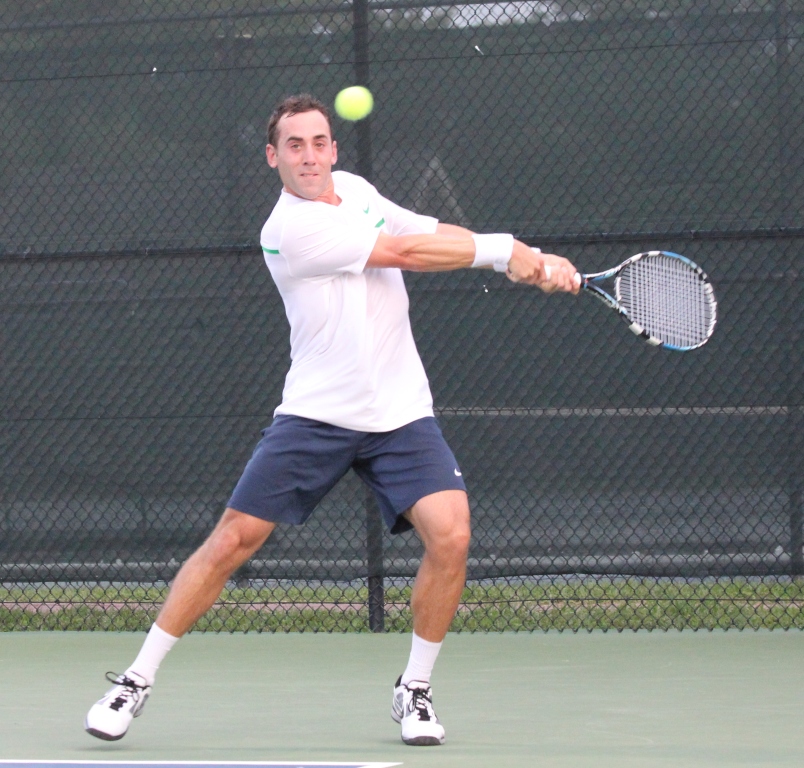 Bobby Reynolds Bobby Reynolds |
“I would say it’s never too late to go after your dreams,” the aging (by tennis standards) veteran says of his goals to keep reaching Grand Slam events and winning matches there. “I never said to myself, ‘Oh, you’re too old.’” (His latest dream came true when his wife Josie gave birth to their first child, Parker Thomas Reynolds.)
Reynolds does recognize his own human limitations: He knows he is not the most skilled player on the ATP tour or in the World Team Tennis league.
“Ninety percent of my game is just staying out there on my feet just battling,” he says. “I don’t have the most talent. I rely on my heart. I know in the back of my mind, I can get to one extra ball.”
He has tracked down a ton of those “extra balls” while playing for the Washington Kastles, winners of two consecutive championship titles. By the end of the 2012 season, Reynolds had closed 19 of the team’s 32 consecutive wins. His numbers will almost certainly go up during the 2013 season that began on July 8.
Coach Murphy Jensen is counting on it.
“His character is the reason we have him as a closer,” Jensen says. “We can count on him. We rely on him going into the final set. We know that he’s going to leave everything on the court and he’s playing for everyone else – not for himself.”
Former Kastles teammate Arina Rodionova is quick to laud Reynolds’ unselfishness, too. She credits much of her success in Washington to the time Reynolds set aside to help her train and improve her strokes.
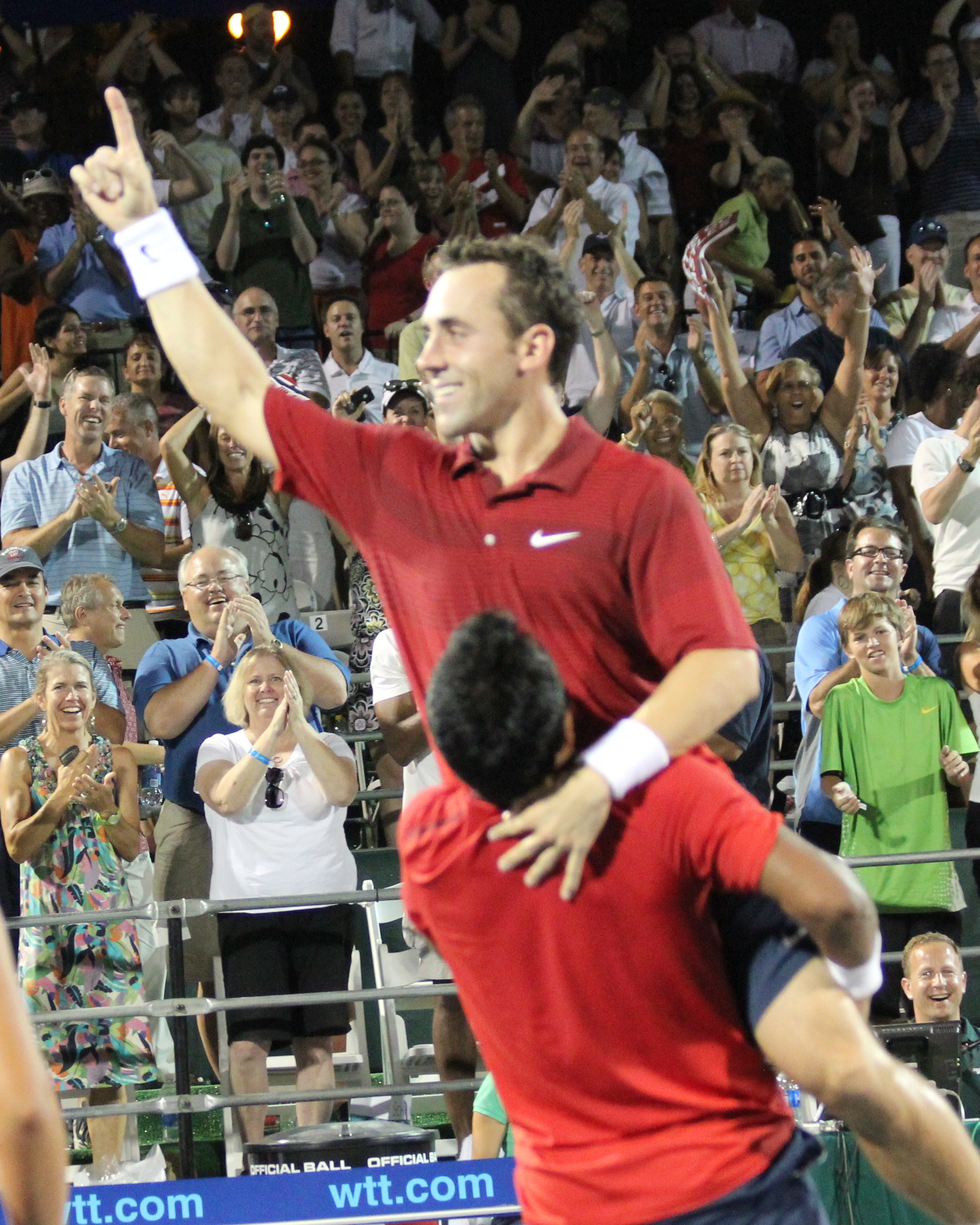 |
“Bobby will do everything for anybody on the team,” she says. “He has been like a brother to me. It has been unbelievable the way he has helped me.”
Reynolds readily admits that he is crazy about World Team Tennis and the camaraderie of the Kastles – perhaps even to the detriment of his own potential rise up the rankings. He is at press time ranked No. 137 and has earned 409 points. One of his goals is to return to the top 100, a spot currently held by Lukas Lacko, who has a scant 146 more points.
I love to do this, playing World Team Tennis,” Reynolds says. “If I miss three or four tournaments a year, so what. I love playing for the Kastles. I look forward to these three weeks every year.”
The Massachusetts-born but Georgia-reared journeyman knows it’s important to do what he loves while he still can: Tennis was nearly taken away from him four years ago in perhaps one of the most unexplainable injury in tennis – one he never even felt. It came after lunch at the 2009 French Open.
“I practiced in the morning to get ready for French,” he remembers. “I went to lunch, came back and went to hit a ball. I couldn’t do it. I don’t know what happened. All of a sudden I couldn’t hit the ball. It was a freak accident. A tendon in my left wrist just stopped working. I was at a career-high 63. It was depressing, frustrating.”
The injury sidelined him for the rest of the year and altered the upward trajectory of his career. The injury also gave Reynolds time to reflect – lessons that are still with him today.
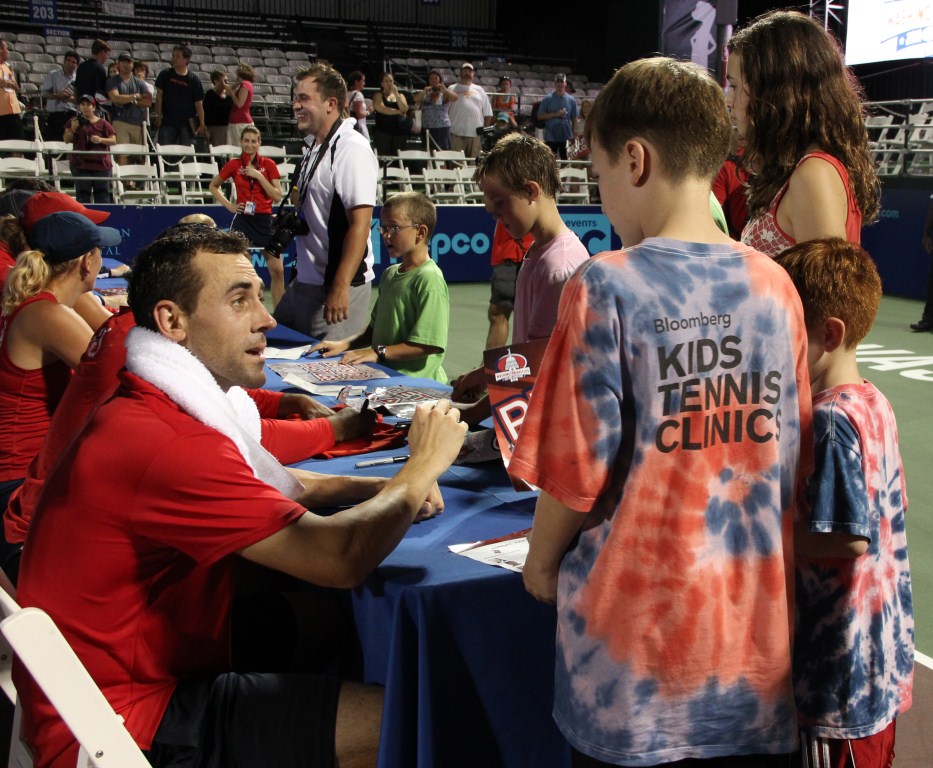 |
“I think everything happens for a reason, good or bad,” he says. “Maybe I won’t make it back to 63 but playing is better than sitting at home on the couch. I understand and appreciate the game. I owe everything to the sport of tennis. It was a lifetime dream to play tennis. It started off just going to college and it has kind of built from there. I never felt like I could be a professional tennis player but I went out there and good things happened. I’ve seen places that I would have never been able to see and that a lot of people can only imagine. I’ve met a lot of people from all over the world, people who make an impact on me and who I have a chance to influence. I owe everything to the game.”
The “influence” part is high atop Reynolds’ motivations. He would like to play for several more years but he knows time is catching up to him.
“It’s going to be hard for me to step away from the game,” he says. “I want to stick with tennis, give back to kids.”
At a Kastles celebration at the end of the 2012 regular season – a scorching hot day in Washington D.C. — Reynolds leaves before the party is over … but not so he can take at least half a day off. Some of the ball kids for the Kastles had asked him to hit with them before the season was over. Off to The Wharf he went.
Kastles’ owner Mark Ein wasn’t surprised by the move.
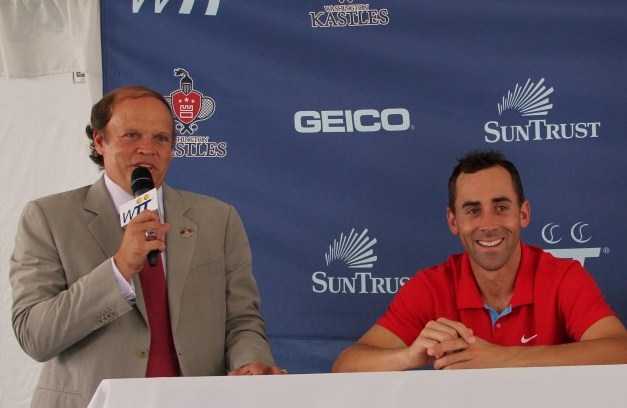 Mark Ein (left) & Bobby Reynolds Mark Ein (left) & Bobby Reynolds |
“He’s so selfless, so giving,” Ein says. “Today he’s going to go hit with the ball kids because they asked to hit with him. He hasn’t had a day off in weeks. He’s working so hard and the schedule is so grueling and he’s going to take time to go hit with the ball kids. That’s how much it means to him. The guy has the absolute highest work ethic, the finest character and the most sincere and genuine personality. It’s an incredibly rare package.”
Photos By Won-ok Kim
